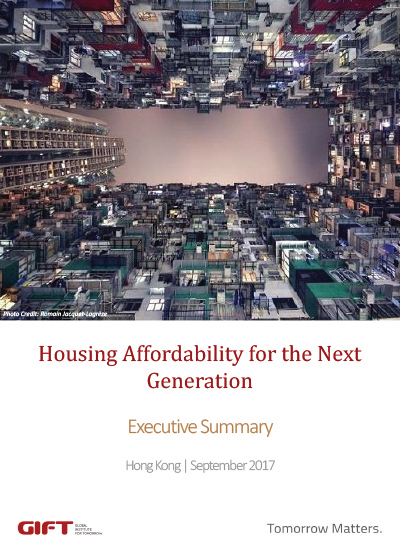Hong Kong has recently been ranked the world’s most unaffordable housing market. A skilled worker would need 18.5 years of income to purchase a modest 60m² flat near the city centre. Property prices are 40% above their 1997 peak, driven by a tight supply of new flats, strong end-user and investor demand, stable economic performance, low interest rates, and ample liquidity.
Despite government efforts, such as measures to curb speculative activity and plans to deliver 460,000 housing units over the next decade, public housing demand continues to grow, with over 150,000 applicants facing an average 4.7-year wait. Around 200,000 residents live in poor conditions within sub-divided units.
Why the Need for Recommendations
The government’s reliance on land sales for revenue (35% of total revenue in 2016–17) and the division of responsibilities between the Transport and Housing Bureau and the Development Bureau limit incentives and coordination to truly cool the property market. Policy responses have focused heavily on land supply without addressing systemic issues such as governance structure, vested interests, and quality of housing. Without a more holistic and coordinated approach, housing affordability will remain out of reach for many.
Key Recommendations from the Report
1. Establish a New Housing Bureau
The report recommends creating a centralised Housing Bureau that brings together all land and housing functions, including the Lands Department. This bureau would shift its focus away from revenue maximisation through land sales and instead balance housing needs with fiscal priorities.
2. Unlock Under-utilised Land
Significant opportunities exist to free up land in urban areas where infrastructure is already in place. The report advises against tapping into country parks or embarking on large-scale reclamation projects. Instead, unlocking 4,379 hectares of under-utilised land could potentially deliver 2.9 million housing units—six times the current 10-year government target.
3. Lower Construction Costs and Shorten Timelines
To boost housing supply, approval processes should be streamlined and construction policies revised to reduce costs. These changes would allow projects to be completed faster and more efficiently.
4. Targeted Demand Management
Measures are needed to control speculative and investor-driven demand. This includes curbing non-local buyers, supporting first-time buyers, and providing greater assistance for low-income tenants across both public and private housing. The report also highlights the importance of addressing overheating in the land sale process.
5. Ensure Housing Quality
Affordability should not come at the expense of quality. The report calls for statutory minimum dwelling sizes, regulation of sub-divided units, and better community services for vulnerable groups such as low-income families and the elderly. It also recommends redeveloping old buildings through fair and financially viable processes.
6. Form a Housing Policy Commission
Finally, the report proposes establishing an independent Housing Policy Commission with a 9–12 month mandate. This body would engage a wide range of stakeholders and put forward holistic, actionable solutions to address systemic housing challenges.


